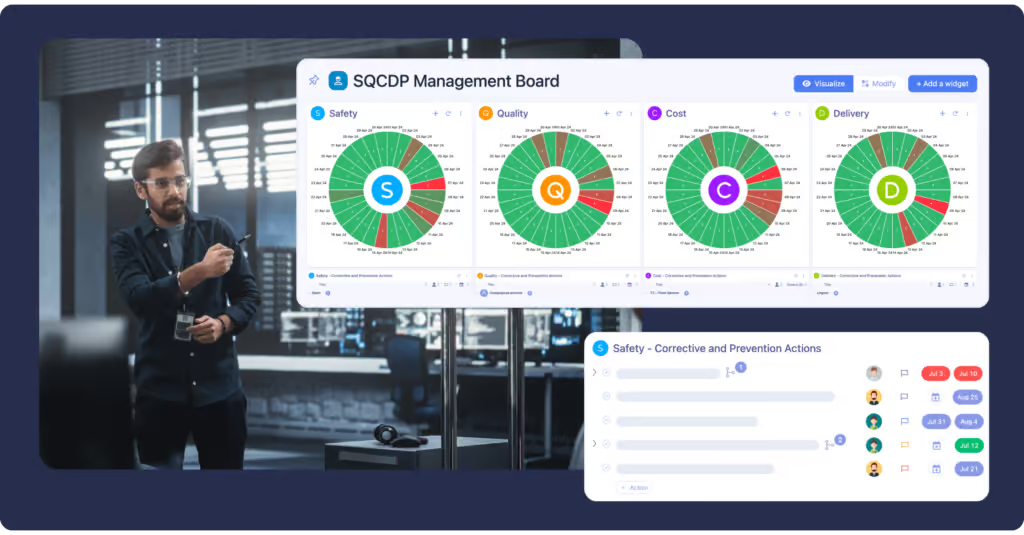
Payroll taxes might sound intimidating, but it’s a critical aspect of the financial landscape for businesses and individuals alike. That’s why it’s so important to fully understand your responsibilities, whether you are a business owner responsible for managing payroll or an employee seeking a better understanding of deductions from your paycheck.
In this comprehensive guide, we’ll cover the various types of taxes at the federal, state, and local levels, and provide you with all the information you need to stay compliant with the law. From practical tips for efficient payroll tax management to the benefits of leveraging payroll software, this guide is designed to empower both employers and employees to navigate the complexities of payroll taxes with confidence.
Definition and Types of Payroll Taxes
Payroll taxes are defined as small portions of the paycheck that go toward supporting important programs and government services. Both employers and employees contribute to these taxes, but there are different types of payroll you need to be aware of:
Federal Payroll Taxes
Social Security Tax
- Social Security tax is a federal tax that funds the Social Security program, providing financial support to retirees, disabled individuals, and survivors.
- Calculation: Typically a percentage of an employee's earnings, subject to an annual wage cap.
Medicare Tax
- Medicare tax finances the Medicare program, which offers healthcare benefits to individuals aged 65 and older and certain younger individuals with disabilities.
- Calculation: Consists of two parts—Medicare Hospital Insurance (HI) tax and Medicare Supplementary Medical Insurance (SMI) tax.
Federal Income Tax Withholding
- Employers are required to withhold federal income tax from employees' wages, ensuring that individuals pay their income taxes throughout the year.
- Calculation: Based on the information provided by employees on their Form W-4 and the IRS withholding tables.
State Payroll Taxes
State Income Tax Withholding
- Many states impose an income tax on employees, and employers are responsible for withholding this tax from employees' paychecks.
- Calculation: The rate varies by state, and some states may have multiple tax brackets.
State Unemployment Tax
- This tax funds state unemployment benefits, providing financial assistance to individuals who lose their jobs.
- Calculation: Employers pay a tax on a portion of each employee's wages, and rates may vary based on factors such as the employer's industry and experience rating.
Local Payroll Taxes
City or County-specific Taxes
- Some local jurisdictions may impose additional payroll taxes to fund specific local initiatives or services.
- Calculation: Rates and regulations vary widely, and employers must comply with the specific requirements of the locality in which they operate.
Calculating Payroll Taxes
Calculating payroll taxes involves a dual contribution system, where both employer and employee should contribute to fund important programs. To make the calculation process easier to understand we’ll break it down into specific components so you can easily see how these tax contributions work.
But, before calculating the taxes you need to determine the taxable employees and the wage amount. Depending on the location you might need to calculate paycheck in Texas, California, or any other state before dealing with the taxes. This way you can be sure that you are compliant with the law and avoid possible penalties.
Keep in mind that some taxes have fixed percentages based on the wage, and others depend on tax rates imposed by the state and federal governments.
Employee Contributions
- Social Security Calculation - The social security is based on a straightforward percentage of an employee’s earnings.
- Rate - Currently set at 6.2%
- Calculation - Multiply the employee's earnings by 6.2%
- Medicare Calculation - The calculation for Medicare involves a separate percentage of the employee's earnings.
- Rate: Typically 1.45%
- Calculation: Multiply the employee's earnings by 1.45%
- Federal Income Tax Calculation - The calculation is influenced by the information provided by employees on their Form W-4 and the IRS withholding tables
- Rate: Variable, based on individual circumstances.
- Calculation: Apply the specified income tax rate to the employee's earnings
- Matching Social Security and Medicare Contribution - Employers also contribute to Social Security and Medicare, matching the amounts withheld from employees' paychecks.
- Social Security Matching Rate: 6.2%
- Medicare Matching Rate: 1.45%
- Additional Employer Taxes - In addition to matching contributions, employers may be subject to additional taxes, such as federal and state unemployment taxes.
- Rates: Vary based on factors such as the employer's industry and experience rating
Tips for Efficient Payroll Tax Management
Efficient payroll tax management is a must if you want to stay compliant with the law, avoid penalties, and ensure timely payments. Even though the payroll taxes might be an overwhelming task at the beginning, you can use a few tips and tricks to make the process easier.
Stay Informed About Tax Law Changes
Tax laws are not static; they evolve over time. Staying informed about changes in tax laws, both at the federal and state levels is essential. Regularly check for updates, attend seminars, or consult with tax professionals to ensure your payroll processes remain compliant with the latest regulations.
Invest in Reliable Payroll Software
Technology can be your ally in payroll tax management. Investing in reliable payroll software streamlines the calculation and deduction processes, reducing the risk of errors and ensuring accurate contributions to various taxes. Look for software that aligns with your business needs and can adapt to changing tax requirements.
Seek Professional Advice When Needed
Sometimes, the complexities of payroll taxes require expert guidance. Don't hesitate to seek advice from tax professionals or accountants. Their expertise can help you navigate intricate tax regulations, optimize your tax strategy, and ensure that your payroll practices align with legal requirements.
Conclusion
Understanding the payroll taxes is essential for employees and employers alike. Considering the complexity of the topic it’s important to stay informed, keep up with the changes in the law, and use this comprehensive guide.
This way you will have a piece of mind when it comes to your finances and easily stay compliant with the laws regarding payroll taxes.



